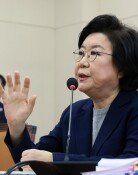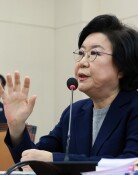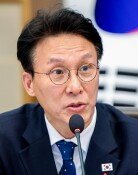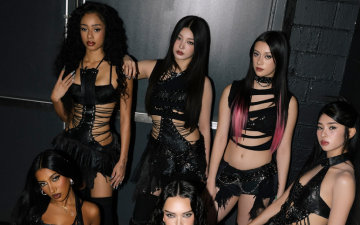Japans Absurd Payment of Fees for Korean Draft Workers
Japans Absurd Payment of Fees for Korean Draft Workers
Posted August. 13, 2005 03:06,
It was reported that to a Korean who was exploited by imperialist Japan in a forced draft during World War II, the Japanese government paid the withdrawal fee from the national pension at a face value as of 60 years ago.
According to the Asahi Shimbuns August 12 report, Japans Social Insurance Agency (SIA) notified Yeo Woon-taek last November that it paid 316 yen on his account as a withdrawal fee from the national pension.
At the time of Koreas liberation, that money was six cows worth. Nevertheless, now it is nothing but one bowl of noodle soups worth, said the angry 82-year-old.
In 1943, Yeo was drafted to the Osaka steel meal of Nippon Steel (currently New Nippon Steel), the biggest steel company in Japan. He operated a crane there. The company forced employees to save most of their salaries in banks, saying that they might otherwise waste money.
In 1947, after the liberation, Nippon Steel deposited outstanding wages of drafted workers to the Japanese government. Learning the fact, Yeo Woon-taek filed a lawsuit against the Japanese government and Nippon Steel, demanding 19 million yen (190 million won), which consisted of the outstanding payment of 495 yen converted into the current price levels plus a solatium. In 2003, the Japanese Supreme Court ruled against Yeo, citing that an overall settlement was made when Korea and Japan normalized their diplomatic ties.
During the lawsuit, Yeo discovered that he subscribed to the national pension for three and a quarter years starting in 1942. He applied for the receipt of the withdrawal fee from the national pension last year, and eventually got the principal of 316 yen.
In response, the Japanese Social Insurance Agency excused itself, saying, There is no reappraisal clause, such as the conversion into the current price levels, in withdrawal fee-related regulations.
Regarding the issue of Korean draft workers withdrawal fees from the national pension, the Japanese government had long maintained that these fees were liquidated when Korea and Japan formed diplomatic relations. Since 1996, however, it has changed its legal interpretation and paid only the face value of the fees as of the end of World War II.
Back in 1994, when paying outstanding salaries and military postal savings of soldiers and civilian workers of Taiwanese origin, the Japanese government converted the amount into 120 times the level of face value at the end of the war.
Hun-Joo Cho hanscho@donga.com







